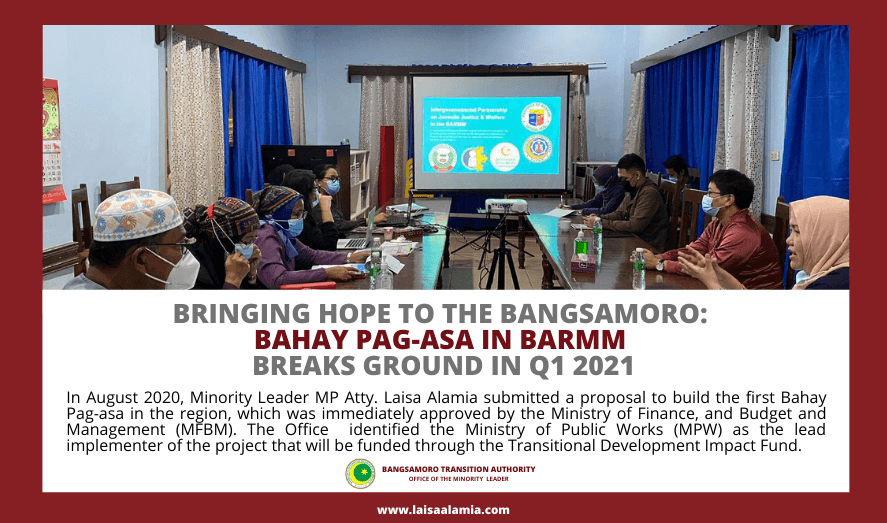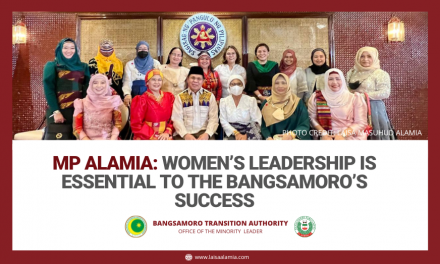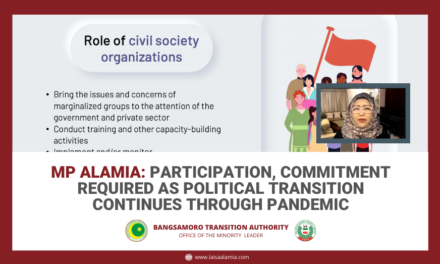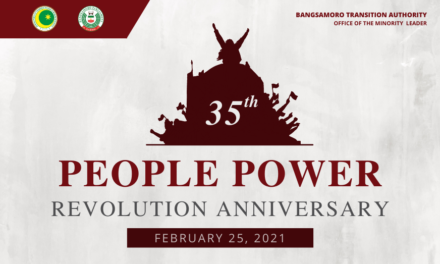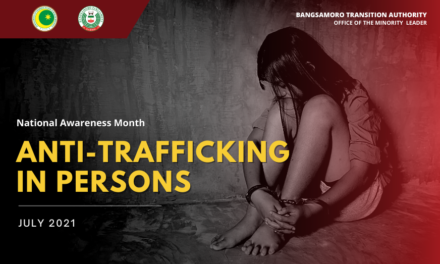Hope used to run scarce in the Bangsamoro as armed conflict and violence planted its roots deep in the land of promise. With the gains of the peace negotiations and signing of the Bangsamoro Organic Law, however, things started to take a turn in favor of peace in the region.
Part of this development is a greater focus on the rights and welfare of marginalized sectors, including women and children. The Office of the Minority Floor Leader has directed its efforts towards upholding the rights of the Bangsamoro people, especially those who have been disproportionately affected by incidents of conflict in the region.
In August 2020, Minority Leader MP Atty. Laisa Alamia submitted a proposal to build the first Bahay Pag-asa in the region, which was immediately approved by the Ministry of Finance, and Budget and Management (MFBM). The Office of the Minority Floor Leader identified the Ministry of Public Works (MPW) as the lead implementer of the project that will be funded through the Transitional Development Impact Fund.
Set to break ground in Basilan in February 2021, it will mark the beginning of a multi-phase project that will lead to the construction and establishment of a BPA in every province of the (Bangsamoro Autonomous Region in Muslim Mindanao) BARMM.
The BPA is a “24-hour child-caring institution established, funded and managed by local government units and licensed and/or accredited non-government organizations providing short-term residential care for children in conflict with the law,” and is a key element in Republic Act 10630, an act that strengthens the Philippine juvenile justice system. This same legislation which amends the Juvenile Justice and Welfare Act of 2006 places the responsibility of building, funding, and operating these centers to local government units.
According to 2018 data released by the Child Rights Network, there were only sixty-three (63) Bahay Pag-asa nationwide out of four hundred fourteen (114) provinces and HUCs, five (5) of which were no longer operational while only eight (8) had fully complied with requirements set by the law.
None of these centers are located in the BARMM.
The lack of adequate and quality facilities to care for CICL prevents the government from fully implementing laws that safeguard the rights of children. At present, a considerable number of CICL are subject to substandard facilities while they are detained, with the Juvenile Justice Welfare Council (JJWC) itself reporting that a number of facilities have “subhuman conditions” due to budget constraints.
The Office has met with the provincial government of Basilan on 18 January to discuss the initiative, following previous discussions with the provincial government in hopes of augmenting efforts in institutionalizing child-friendly juvenile justice programs in the localities. They were joined by representatives from the JJWC, the Bangsamoro Human Rights Commission, and the MPW.

